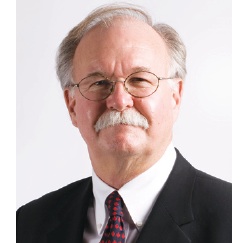Ronald Doering, the first president of the Canadian Food Inspection Agency and the only one I can remember, writes in his Food Law column:
 Until recently there has been little serious research on the most significant food safety advance in the last decade, a development that has been entirely outside the realm of public law — the extraordinary growth of third-party supplier audits. There are now over 500 food safety audit firms, many of which have global operations.
Until recently there has been little serious research on the most significant food safety advance in the last decade, a development that has been entirely outside the realm of public law — the extraordinary growth of third-party supplier audits. There are now over 500 food safety audit firms, many of which have global operations.
The Food Safety Service Providers, an industry association representing nine leading private food safety audit firms, asserts that its members alone conduct more than 200,000 audits and inspections in more than 100 countries each year. It has been estimated that in the U.S. the scale of private food law auditing activity is now 10 times larger than that of the federal government, more than all federal and state efforts combined. Two recently published academic studies provide interesting insights into several aspects of this important new area of food law.
Audits and Inspections Are Never Enough: A Critique to Enhance Food Safety (Food Control, vol. 30, issue 2) by Douglas Powell et al. identifies the many limitations of third-party audits and documents several cases of major foodborne illness outbreaks linked to food processors that have passed third-party audits. Audits need to be supplemented by other measures such as microbial testing, and companies must have in-house capacity to meaningfully assess the audit results. Third-party audits are part of “a shift in food safety governance away from government regulation and inspection towards the development of private food safety standards.” This study represents a cogent caution to the audit industry that they must improve their systems, and a warning to the food industry that audits are never enough.
 In the latest Wisconsin Law Review American law professors Timothy D. Lytton and Lesley K. McAllister (Oversight in Private Food Safety Auditing: Addressing Auditor Conflict of Interest, 2014) provide the first comprehensive analysis of one of the most serious problems with private food safety auditing — auditor conflict of interest. Auditors are paid by the company being audited. Suppliers have an interest in finding the cheapest and least intrusive audit that will provide a certificate, and auditors have a financial incentive to reduce the cost and rigour of audits to get business in a very competitive environment. This study analyzes several oversight mechanisms that have been developed to mitigate the conflict problem, but concludes that at this time there are still too few financial incentives to assure more rigorous auditing.
In the latest Wisconsin Law Review American law professors Timothy D. Lytton and Lesley K. McAllister (Oversight in Private Food Safety Auditing: Addressing Auditor Conflict of Interest, 2014) provide the first comprehensive analysis of one of the most serious problems with private food safety auditing — auditor conflict of interest. Auditors are paid by the company being audited. Suppliers have an interest in finding the cheapest and least intrusive audit that will provide a certificate, and auditors have a financial incentive to reduce the cost and rigour of audits to get business in a very competitive environment. This study analyzes several oversight mechanisms that have been developed to mitigate the conflict problem, but concludes that at this time there are still too few financial incentives to assure more rigorous auditing.
Considering how few inspections are actually carried out by the Food and Drug Administration (FDA) relative to the number of businesses it is responsible for, it is ironic that the U.S. has been so reluctant to embrace more fully the advantages that third-party audits represent. Perhaps this is because President Obama is so beholden to consumer activist groups that do not trust the industry, believe that only FDA inspectors can stop big bad food companies from poisoning consumers, and who refuse to recognize that it is private audits that are increasingly the drivers of enhanced food safety. Obama has declared that it is the state that has the primary responsibility for food safety, and the former FDA commissioner dismissed audit schemes as being merely “a business strategy, not a public health strategy.”
In Canada we have always recognized that while it is a shared effort, practically and legally it is food producers that have the primary responsibility for food safety. Industry recognized some years ago that they couldn’t meet this responsibility adequately just by complying with government regulations — that they could protect their brand from recalls, minimize foodborne illness law suits, source ingredients widely and trade internationally only if, among other things, they insisted on warranty agreements from suppliers and that these were backed up by independent third-party audits. There are many legal and other problems with these relatively new instruments at this still early stage in their development, but they’ve come a long way in the last 10 years.
Finding ways to better integrate public law-based food safety regulations with private law-based certification systems may prove to be one of our more interesting challenges in the decade ahead.
